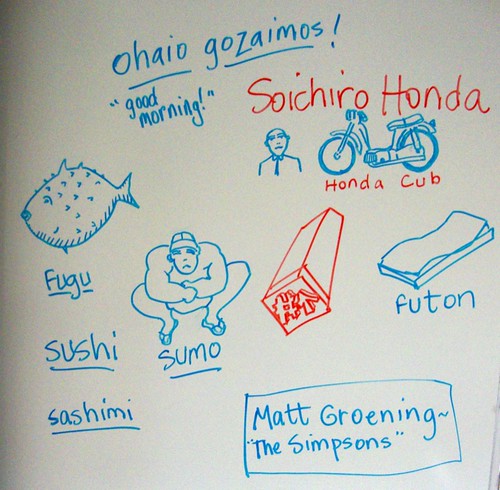Soichiro Honda (1906 – 1991) was a Japanese engineer and industrialist, and founder of Honda Motor Co., Ltd..[1]
Honda was born in Hamamatsu, Shizuoka, Japan, says Wikipedia, in 1906. He spent his early childhood helping his father, Gihei, a blacksmith, with his bicycle repair business. At the time his mother, Mika, was a weaver.
At 15, without any formal education, Honda left home and headed to Tokyo to look for work. He obtained an apprenticeship at a garage in 1922, and after some hesitation over his employment, he stayed for six years, working as a car mechanic before returning home to start his own auto repair business in 1928 at the age of 22.
In 1937 Honda founded Tōkai Seiki to produce piston rings for Toyota. During World War II US B-29 bomber attack destroyed Tōkai Seiki's Yamashita plant in 1944, and the Itawa plant collapsed in the 1945 Mikawa earthquake, and Soichiro Honda sold the salvageable remains the company to Toyota after the war and used the proceeds to found the Honda Technical Research Institute in October 1946.[2][3]
In 1948 he started producing complete motorcycles as president of the Honda Motor Company. Honda turned the company into a billion-dollar multinational that produced the best-selling motorcycles in the world.
Honda's engineering and marketing skills resulted in Honda motorcycles' outselling Triumph and Harley-Davidson in their respective home markets. In 1959 Honda Motorcycles opened its first dealership in the United States.
His status was such that People magazine placed him on their "25 Most Intriguing People of the Year" list for 1980, dubbing him "the Japanese Henry Ford." In retirement Honda busied himself with work connected with the Honda Foundation.
The Honda Cub is a scooter-like motorcycle with a four stroke single cylinder engine ranging in displacement from 49 to 109 cc.
Having been in continuous manufacture since 1958, with production surpassing 60 million in 2008,[1][2] the Super Cub is the most produced motor vehicle* in history.[3][4]
The Super Cub's US advertising campaign, "You meet the nicest people on a Honda", had a lasting impact on Honda's image and on American attitudes about motorcycling, and is considered a classic case study in marketing.
skip to main |
skip to sidebar
For students and parents who love education and exploration of the social sciences . . .
Search This Blog
Followers
Blog Archive
-
▼
2012
(254)
-
▼
May
(22)
- Freshman Talent Show, Class of 2016, on Fri, Jan 11
- Final exam mandatory comparison essay, 20 pts.
- Caddo Magnet HS students @ Valencia Communty Garde...
- Demographics: Japanese girls just want to have fun
- Nihon / Japan: Soichiro Honda
- First Emperor Qin Shi Huang Di and the Terra Cotta...
- Chinese guard dogs & male-dominant gender imbalance
- Second semester world geography study guide, 2012
- Cybercafes: "Chinese govt blocks website content a...
- "One family, one child" policy effective against o...
- Know your Basic Mandarin!
- Hong Kong Island 香港:遥看九龙
- Semester exam schedule, May 24 through 30
- Not One Less: a guide for social studies students
- The Odyssey of a Chinese teen in the movie Not One...
- Taipei, Taiwan: a place of wealth and high-tech in...
- Marco Polo's name: Cathay, and Qin Shi Huang's nam...
- Summer reading list, Caddo Magnet HS, 2012
- Caddo Magnet HS students pilot peanut project in V...
- Mandarin Chinese: one billion speakers
- Indie work to add points . . .
- Tibet and China as well as Buddhist Prayer Flags
-
▼
May
(22)

